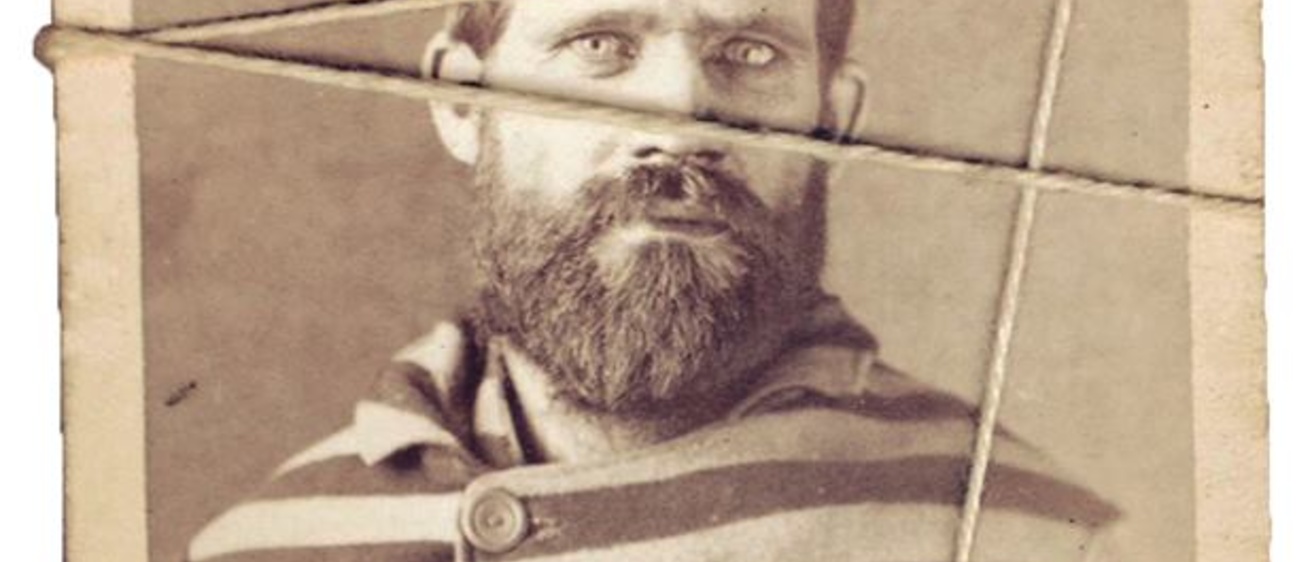Conversation Begins at Obermann Graduate Institute
Kathrina Litchfield, recent SLIS grad and a current PhD candidate in Language, Literacy, and Culture (College of Education) and Gemma Goodale-Sussen (English, CLAS) met for the first time last January as Fellows of the Obermann Graduate Institute on Engagement and the Academy. As they shared their respective public engagement projects, each woman had the same thought: “How have I not met you before?”
The Graduate Institute often provides students from across the disciplines with an opportunity to find their “tribe” – other graduate students who are as interested in issues and methodologies of public engagement as they are in their respective subjects. But Litchfield and Goodale-Sussen had been traversing such a similar path at the Iowa Medical & Classification Center (IMCC)—Litchfield at IMCC with a prison book group and Goodale-Sussen with a prison writing workshop—that it was surprising their paths had not yet crossed.
UI Prisons Project Coalition Hosts First Symposium
They realized that there was an entire community of like-minded scholars dedicated to developing research and collaborations with prisons. And they knew that a lot could be accomplished if this interdisciplinary network was organized and made public. Thus was born the UI Prison Projects Coalition and the upcoming symposium, Incarcerated in Iowa.
Litchfield was further energized by a meeting she had with John Baldwin, Director of the Iowa Department of Corrections, in which he had made clear the Department’s desire to partner with the scholarly community. Litchfield had a hunch there was more going work on than was readily apparent, and she wanted to showcase it, while also bringing scholars and corrections personnel together to collaboratively figure out what else was needed.
Director of Iowa Department of Corrections to give keynote
On September 6, Baldwin will give the keynote lecture for the first Incarcerated in Iowa symposium. The two Obermann Graduate Fellows planned the event, which they hope sets the stage for an annual symposium and other ongoing conversations. More than a hundred participants are registered to take part in the event, including a large group of staff members from the Department of Corrections; prison librarians from six states; the director of the film Prison Terminal: The Last Days of Private Jack Hall, which will be screened the night before the main proceedings; Pulitzer Prize-winning author Marilynne Robinson, who has worked with prison populations; and several state and county-level politicians.
“I think it’s an indication of how this is a conversation that needed to happen,” says Litchfield of the impressive registration numbers. “We are overdue.”
Along with Baldwin’s talk, Carolyn Colvin (Language, Literacy & Culture, College of Education), who co-directed last year’s Obermann Graduate Institute, will give a talk introducing the practice of public engagement. Another panel will showcase current University of Iowa-led projects in state incarceration facilities, including Mary Cohen’s (Music, CLAS) Oakdale Community Choir and the Public Health in Prison Initiative that is being led by 2014 Obermann Interdisciplinary Research Grant recipients Nicole Nisly (College Medicine), Janette Taylor (College of Nursing), and Rachel Williams (Art & Art History and GWSS, CLAS).
Ft. Madison Project Showcased
Also featured will be the Ft. Madison Prison Memory Project that is being led by Mark Fullenkamp (CLAS) with assistance from Goodale-Sussen and involvement from History Corps, a 2014-2015 Obermann Working Group. They are working to preserve thousands of glass plate photographic negatives and hundreds of documents from the soon-to-close Iowa State Penitentiary in Ft. Madison, IA. In an interesting point of collaboration, inmates at the Iowa Correctional Institution for Women in Mitchellville, IA, digitized more than 14,000 of the photographs.
Litchfield and Goodale-Sussen see the symposium as an opening conversation toward more and better-facilitated work. They are acutely aware that major questions will not be answered in a single day, but the group can begin to identify what kind of research is not occurring now that is needed, and what kind of services scholars and community volunteers can provide that aren’t presently offered. How can the University of Iowa collaborate with the Department of Corrections to improve outcomes for those living and working in Iowa’s prisons?
Stakeholders in symposium's success include Iowa's 8,000 inmates
“When I came to the Graduate Institute, I didn’t really know what public engagement was,” says Litchfield. In that week, she found essential connections, both with Goodale-Sussen and other faculty who provided models. She also realized the value of working collaboratively, of listening to all stakeholders in a project: “My voice and my abilities are stronger when I’m working with others.” The two women hope that the symposium and network will create more innovative support and provide deeper expertise to tackle the issues facing the 8,000 people presently incarcerated in our state.
To register for the symposium and learn more about the University of Iowa Prisons Project, go to: http://www.incarceratediniowa.com/ [link no longer active].
